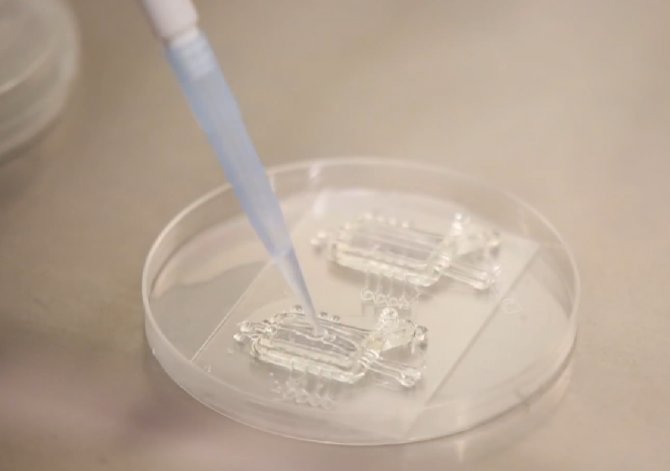Sugar May Help Pave the Way for Synthetic Livers

Sugar is used to produce a variety of desserts and beverages, but with new studies, researchers may not be too far off from creating a synthetic liver with the help of sugar.
For years researchers and scientists have faced a number of hurdles while generating synthetically engineered cells. These cells frequently died before the tissue could be formed, but with the use of 3D printers, scientists were able to use sugar as a building material.
Dr. Jordan Miller and Dr. Christopher Chen, both from the University of Pennsylvania, and researchers from the Massachusetts Institute of Technology (MIT) teamed up to build a synthetic vascular system that would act the same way as blood vessels would. The obstacle they would face is keeping the cells from suffocating and, eventually, dying.
Professor Sangeeta Bhatia at MIT explained the technique that was used is comparable to creating the shape of a vase in wax. According to Bhatia, it was a grueling process to construct organs big enough to provide the same beneficial function for one reason. If any tissue that is implanted is thicker than a millimeter, it would be hard to provide nutrients without having to engineer blood vessels into the new tissue.
"Sugar is a very nice material that can be dissolved away in the presence of living tissue, it's very friendly to biological tissue,” Bhatia said to BBC.
Though researchers did not implant the tissue, the key point was to exhibit that 1) it was possible to construct thicker tissue and 2) ensure that it could be fed by the network of pipes, so it would be able to create an organ.
While this new discovery can lead to fundamental breakthroughs, Professor Martin Birchall, as surgeon at University College London, states there are still significant problems present in tissue engineering. The next step is to test these findings on animals.
The study was published in Nature Materials.
Published by Medicaldaily.com



























